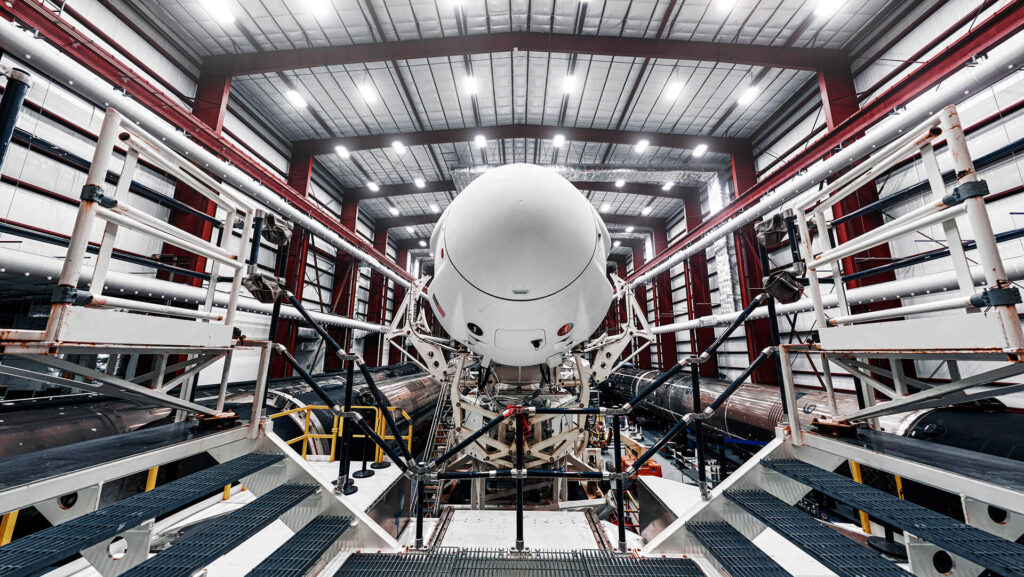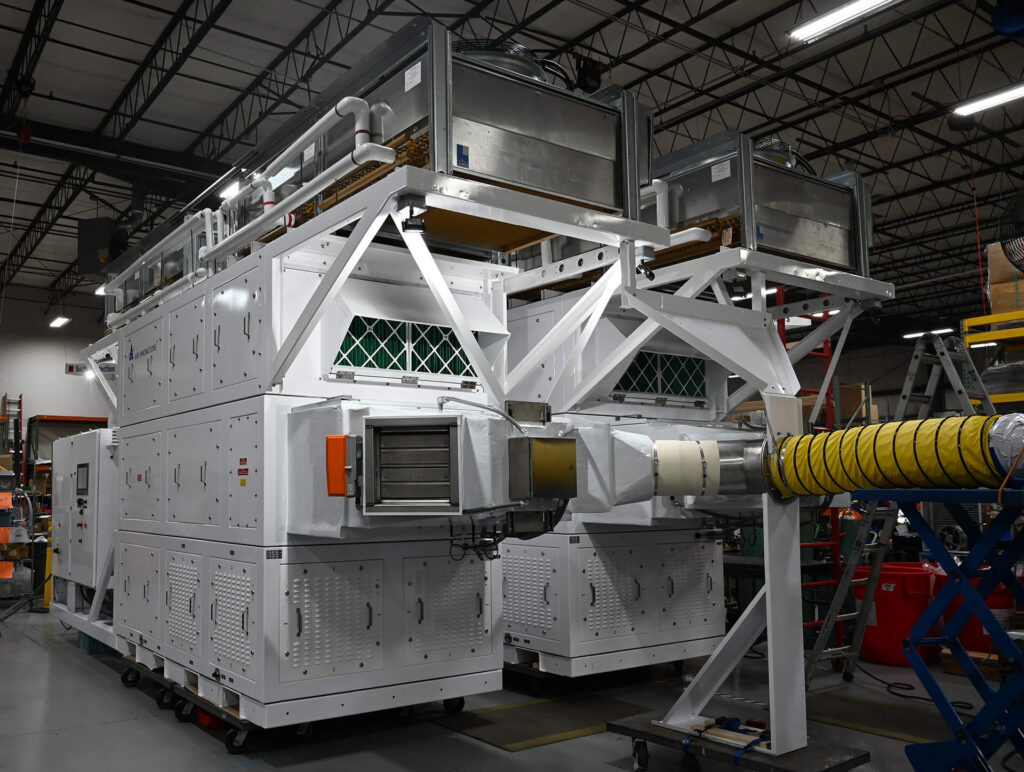A private aerospace manufacturer of rockets and spacecraft for commercial and military use commissioned Air Innovations to develop a state-of-the-art environmental control system to support various capsule launches. The client sought an active redundant solution to protect priceless military payloads from extreme ambient conditions as the payloads were transported between multiple facilities and the launch pad. The company trusted Air Innovations to help them with this project because of Air Innovations’ depth of experience applying precision temperature, humidity, and cleanliness control to the aerospace sector.
The Challenges
The main challenge was engineering two portable environmental control systems (PECS) to operate continuously and transition seamlessly from one to another, as needed. The primary PECS would supply clean, conditioned air to protect the payload while the second unit remained in stand-by mode. The team at Air Innovations needed to design a solution that automatically switched operation to the redundant unit when anything triggered the first unit to shut down. This could include equipment malfunction, portable generator failure, or other transport issues.
The second challenge was designing a system that could operate in extreme weather conditions common at the Cape Canaveral launch site in southern Florida. Each PECS would need to tolerate ambient temperatures ranging from 20°F (-7°C) to 100°F (38°C), as these temperatures could jeopardize space flight hardware. Similarly, relative humidity up to 99% needed to be addressed to prevent condensation from collecting on equipment and threatening launch conditions.
Lastly, the PECS would need to remove dirt, hydrocarbon contaminants, and other particles, as they could damage sensitive instruments.
The Solution
Air Innovations engineered, manufactured, and tested two highly specialized PECS to provide once-thru steady-state air on a mobile platform to a spacecraft. The company designed each system with a pre-cooler, a desiccant dryer, and a post-cooler, which contributes an equal portion of the required airflow to the spaceship and exhausts an equal amount of excess air into the atmosphere.
Internal sensors were installed to assess system health and to monitor temperature and relative humidity. The sensors were accurate within ±1°F and ±2% relative humidity. When supply air conditions exceed these tolerances, an alarm sounds and immediately shuts down the primary PECS. Insulated, stainless steel, interconnecting ductwork was added to ensure a seamless transition between the PECS.
Air Innovations also conducted extensive heat load calculations to address the fluctuations in temperature and humidity expected in Cape Canaveral. In anticipation of transporting valuable equipment in these extreme weather conditions, Air Innovations designed the system to function in ambient temperatures up to 100°F and as low as 20°F.
The system was configured to deliver between 1,100 and 2,200 CFM of air. The painted aluminum unit featured an E-coated evaporator and condenser coils to prevent corrosion from salt air.
Highly sensitive filters, including activated carbon and HEPA filters, would remove microscopic particles, hydrocarbons, and other gases that could corrupt delicate controls and sensors. The pre-filtered air would pass over an electric heater for precise temperature control. Then, supply air would pass through the HEPA filter to remove any loose debris to reach 99.95% cleanliness.
The finished product included hot gas bypass refrigeration control and a 30 KW electric re-heater.
The PECSs were designed remotely and tested under precise conditions at the Air Innovations test facility in Syracuse, New York.
The Result:
Air Innovations designed two portable environmental control systems that included the following:
- Cooling, heating, dehumidification, pre-filtration, and HEPA filtration
- Design output conditions of 45 – 85°F (7 – 29°C) within ±3°F (± -17°C)
- 2,200 CFM variable airflow capacity
- ISO Class 6.5 filtration to 99.95% at 0.3µ HEPA
- E-coated evaporator and condenser coils
- Air-cooled condensers mounted on top with pre-cooler nominal 21 tons and post-cooler nominal 16 tons
- Hot-gas bypass refrigeration control
- 30kW electric re-heater
- Compliance with all UL and NEC standards
If you’re ready for a custom solution from Air Innovations, like this custom aerospace environmental control unit, submit a project inquiry or call 1-800-835-3268 today.
If you would like to see case studies for other industries, view our general case studies page. We also have whitepapers covering the semiconductor industry, pharmaceutical industry, and MyZone® systems product line. The whitepaper page can be found here.


